The Greatest Debut Albums of the 1990s
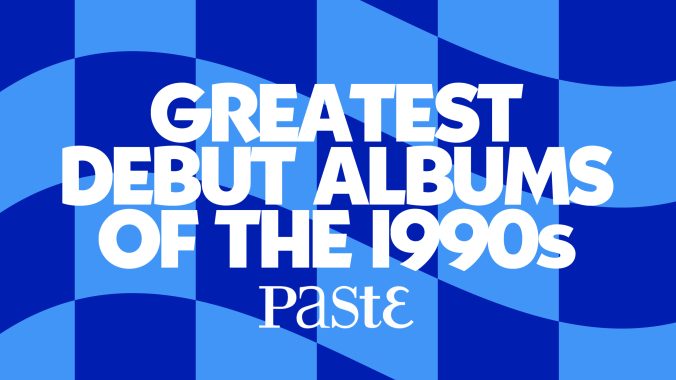
Last month, we ranked the 100 greatest debut albums of the 21st century. Now, we’re setting our sights on the rest of modern music. For the remainder of 2023, the Paste music team will be traversing a half-century of history. Each Saturday, we will be ranking the best debut albums from every decade between the 1960s and 1990s—culminating in a full 20th Century list and then, dare I say it, a greatest debut albums of all time ranking that spans from the 1950s until now. Today, we are looking at the greatest debut albums of the 1990s.
Last week, we tackled the 1980s—a list that, just like the 1970s, was impossible to rank. The music team went back and forth on what to include in our 1990s chapter, and some really great records were, unfortunately, left behind. Given that so many genres found reverence in this decade—from gangsta rap to indie folk to punk to alt-rock—some brilliant projects were always going to be on the outside looking in. But you can’t go wrong with any of the Top 30 that we picked. Don’t miss what happens with the Big List next week, when we rank the 100 greatest debut albums of the 20th century. Until then, may we present you with our picks for the 30 greatest debut albums of the 1990s—featuring A Tribe Called Quest, Britney Spears, Portishead, Fiona Apple, Nas, The Pharcyde and many more. —Matt Mitchell, Paste Music Editor
On the Outside Looking In: Rage Against the Machine: Rage Against the Machine; Oasis: Definitely Maybe; Mariah Carey: Mariah Carey; Garbage: Garbage; Daft Punk: Homework; Pearl Jam: Ten; Jay-Z: Reasonable Doubt; Massive Attack: Blue Lines; Uncle Tupelo: No Depression; The Black Crowes: Shake Your Money Maker
30. Alice in Chains: Facelift (1990)
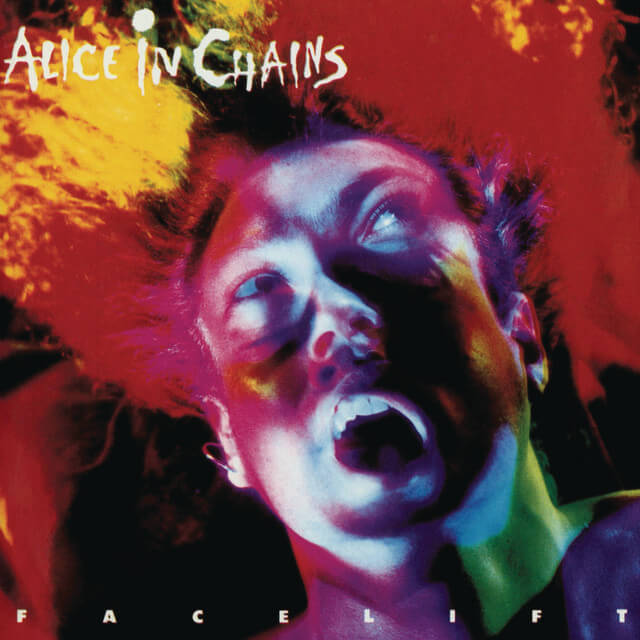 Alice In Chains weren’t the first of the Grunge Era bands to reach the pinnacle of signing to a major label, they were the most successful of them for a time. The quartet’s debut album Facelift pulled from the same source material as their peers, inspired as they were by the psych-doom of Black Sabbath and the glam-metal of Hanoi Rocks. But what they had over the rest of rabble was Jerry Cantrell, a guitarist of redoubtable skill and tone, and Layne Staley, a frontman of glowering countenance and a voice that applied a layer of acidity to his already dark lyrical visions. Rounding it all out with a flexible yet firm rhythm section helped further elevate the dynamics of Alice In Chains’ sound, resulting in an album that mines the psychological depths to reveal a tarpit bubbling under the light of a thousand lava lamps. —Robert Ham
Alice In Chains weren’t the first of the Grunge Era bands to reach the pinnacle of signing to a major label, they were the most successful of them for a time. The quartet’s debut album Facelift pulled from the same source material as their peers, inspired as they were by the psych-doom of Black Sabbath and the glam-metal of Hanoi Rocks. But what they had over the rest of rabble was Jerry Cantrell, a guitarist of redoubtable skill and tone, and Layne Staley, a frontman of glowering countenance and a voice that applied a layer of acidity to his already dark lyrical visions. Rounding it all out with a flexible yet firm rhythm section helped further elevate the dynamics of Alice In Chains’ sound, resulting in an album that mines the psychological depths to reveal a tarpit bubbling under the light of a thousand lava lamps. —Robert Ham
29. American Football: American Football (1999)
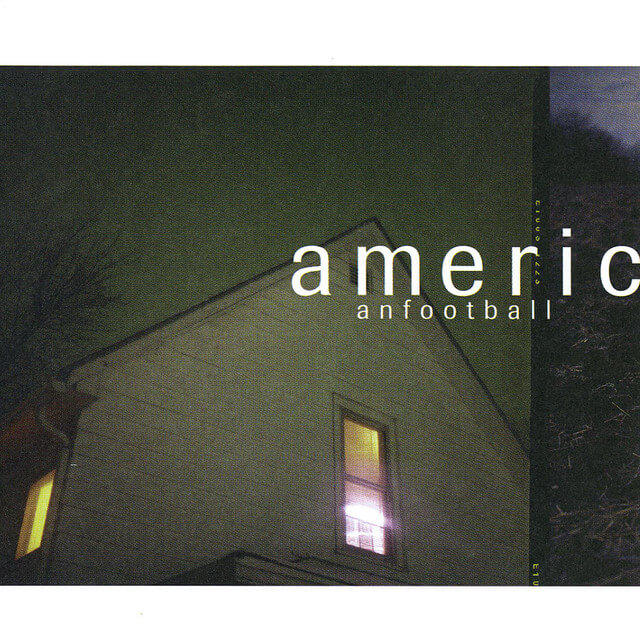 Nothing fills me with existential dread more than the opening riff of “Never Meant,” and I mean that in the best way possible. The Midwest emo suburbia hellscape is something American Football knows all too well, and their self-titled debut has that angst plastered all across it. Nothing got me through my middle school years more than a bunch of twenty-something white guys whining about their emotions because I was whining about all the same things in my mind—being stuck in my hometown but wanting something more. There is a reason we connect with the coming-of-age story. We all went through it in some capacity, which is why American Football remains a pillar of teenage dread so many years later. The soft sting of “Stay Home” captures a biting morning breath in the dead of winter; the yearning trumpet on “The Summer Ends” recreates a quiet afternoon at home with nothing to do; the cascading riff of “Never Meant” might as well be the designated sound of growing up. Perhaps the nature of emo is too self-indulgent, but honestly, the drama of teendom is worth contemplating in such an introspective way, no matter how small the problems may seem. —Olivia Abercrombie
Nothing fills me with existential dread more than the opening riff of “Never Meant,” and I mean that in the best way possible. The Midwest emo suburbia hellscape is something American Football knows all too well, and their self-titled debut has that angst plastered all across it. Nothing got me through my middle school years more than a bunch of twenty-something white guys whining about their emotions because I was whining about all the same things in my mind—being stuck in my hometown but wanting something more. There is a reason we connect with the coming-of-age story. We all went through it in some capacity, which is why American Football remains a pillar of teenage dread so many years later. The soft sting of “Stay Home” captures a biting morning breath in the dead of winter; the yearning trumpet on “The Summer Ends” recreates a quiet afternoon at home with nothing to do; the cascading riff of “Never Meant” might as well be the designated sound of growing up. Perhaps the nature of emo is too self-indulgent, but honestly, the drama of teendom is worth contemplating in such an introspective way, no matter how small the problems may seem. —Olivia Abercrombie
28. A Tribe Called Quest: The People’s Instinctive Travels and the Paths of Rhythm (1990)
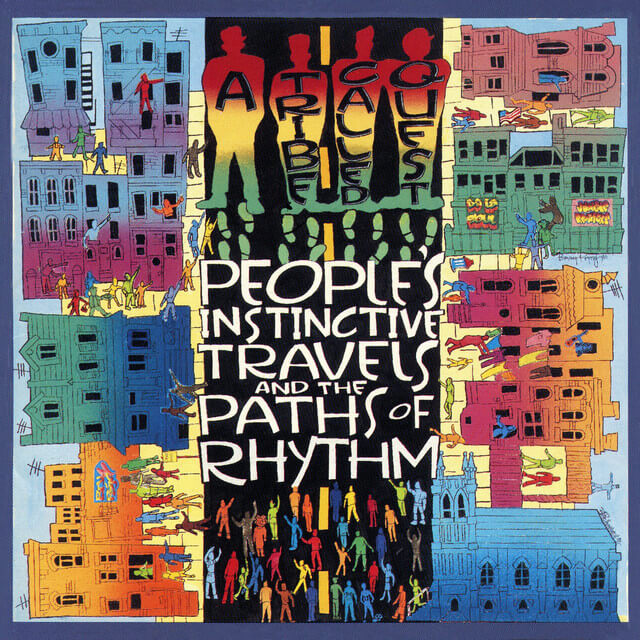 When I was in high school, my friend Logan would pick me up most mornings in his blue Toyota Paseo and take us to school. We never needed coffee back then because we had the flyest collection of Golden Age-era hip-hop CDs, and People’s Instinctive Travels And The Paths of Rhythm was our first love. How “Ham ‘N’ Eggs” drew us in, how we rapped every word to the album’s starter “Push It Along,” how we laughed thinking about whoever “Bonita Applebum” was, how we went around speaking the wack-ass French we learned on “Luck of Lucien” and how we were further enlightened to the world of sampling on the “Can I Kick It?” beat with Lou Reed’s “Take a Walk On The Wild Side” as its backbone. We’d debate for the rest of our lives about which MC had a nicer flow, Q-Tip or Phife Dawg, and on Tribe’s debut album, it was the toughest decision. This is the record that introduced the Jamaica, Queens natives to the world and if you were with the Tribe from the jump off, the memories live forever. —Adrian Spinelli
When I was in high school, my friend Logan would pick me up most mornings in his blue Toyota Paseo and take us to school. We never needed coffee back then because we had the flyest collection of Golden Age-era hip-hop CDs, and People’s Instinctive Travels And The Paths of Rhythm was our first love. How “Ham ‘N’ Eggs” drew us in, how we rapped every word to the album’s starter “Push It Along,” how we laughed thinking about whoever “Bonita Applebum” was, how we went around speaking the wack-ass French we learned on “Luck of Lucien” and how we were further enlightened to the world of sampling on the “Can I Kick It?” beat with Lou Reed’s “Take a Walk On The Wild Side” as its backbone. We’d debate for the rest of our lives about which MC had a nicer flow, Q-Tip or Phife Dawg, and on Tribe’s debut album, it was the toughest decision. This is the record that introduced the Jamaica, Queens natives to the world and if you were with the Tribe from the jump off, the memories live forever. —Adrian Spinelli
27. The Breeders: Pod (1990)
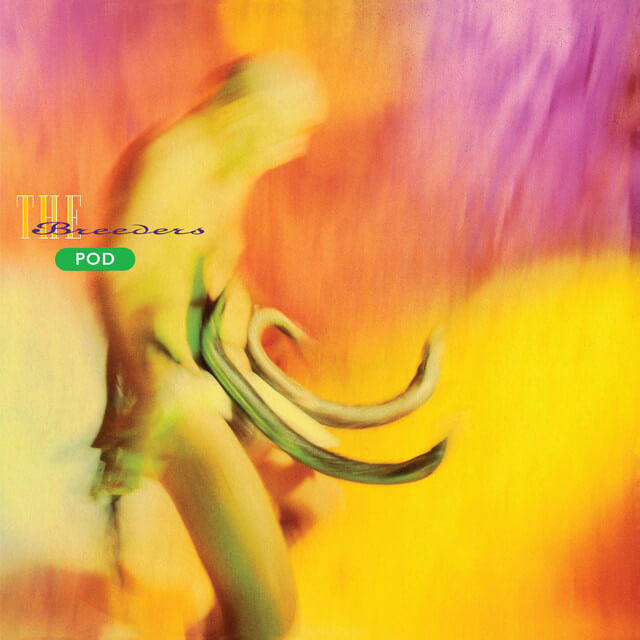 When the first album by The Breeders was released in 1990, it was considered something of a lark. A little side project for Kim Deal and Tanya Donelly who were otherwise employed by Pixies and Throwing Muses, respectively. No one was suspecting that it would creatively outdo the work that their day-job bands had recently released (Bossanova and Hunkpapa) due to its sharp edges and minimalist attack, brought to life by Steve Albini’s punchy production sound and able assistance by two other musicians with regular gigs: bassist Josephine Wiggs from The Perfect Disaster and Britt Walford of Slint. And little did anyone know that this little supergroup that could would become Deal’s full-time endeavor, scoring a surprise Top 50 Billboard single and losing everyone but Wiggs along the way. A supergroup turned into a regular ol’ group, and we’re all the better for it. —RH
When the first album by The Breeders was released in 1990, it was considered something of a lark. A little side project for Kim Deal and Tanya Donelly who were otherwise employed by Pixies and Throwing Muses, respectively. No one was suspecting that it would creatively outdo the work that their day-job bands had recently released (Bossanova and Hunkpapa) due to its sharp edges and minimalist attack, brought to life by Steve Albini’s punchy production sound and able assistance by two other musicians with regular gigs: bassist Josephine Wiggs from The Perfect Disaster and Britt Walford of Slint. And little did anyone know that this little supergroup that could would become Deal’s full-time endeavor, scoring a surprise Top 50 Billboard single and losing everyone but Wiggs along the way. A supergroup turned into a regular ol’ group, and we’re all the better for it. —RH
26. Fugazi: Repeater (1990)
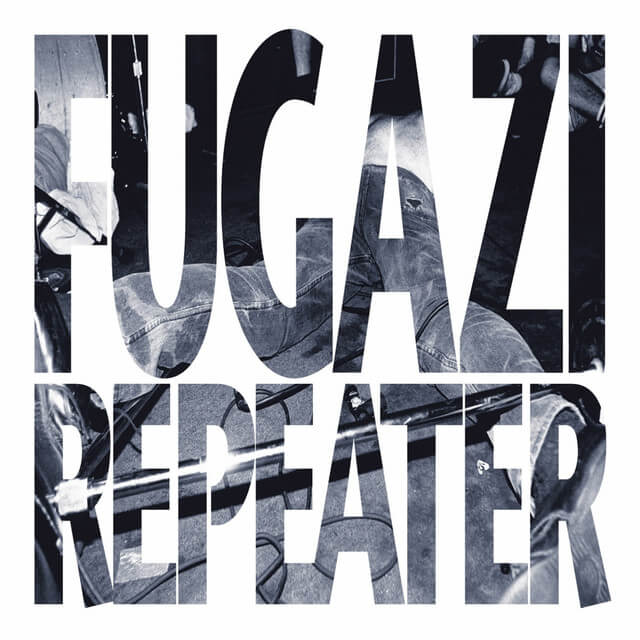 D.C. quartet Fugazi were already well-established within the underground not only for their punk bona fides but also their dynamic live performances and the tense post-hardcore of the two EPs they’d released so far. The pump was well-primed for the group’s debut Repeater. So much so that it burst into the world like a controlled explosion. Developed through long jam sessions and with more decisive input from guitarist / vocalist Guy Picciotto, the songs on this LP were white hot flare ups of fury directed at consumerism, the vast inequality between the haves and have nots and in one final primal scream that is the closing track “Shut The Door,” their collective anger and sadness at the overdose death of a close friend. It’s impossible to experience this album without being moved to action, to destructive rage or to tears. —RH
D.C. quartet Fugazi were already well-established within the underground not only for their punk bona fides but also their dynamic live performances and the tense post-hardcore of the two EPs they’d released so far. The pump was well-primed for the group’s debut Repeater. So much so that it burst into the world like a controlled explosion. Developed through long jam sessions and with more decisive input from guitarist / vocalist Guy Picciotto, the songs on this LP were white hot flare ups of fury directed at consumerism, the vast inequality between the haves and have nots and in one final primal scream that is the closing track “Shut The Door,” their collective anger and sadness at the overdose death of a close friend. It’s impossible to experience this album without being moved to action, to destructive rage or to tears. —RH
25. Elastica: Elastica (1995)
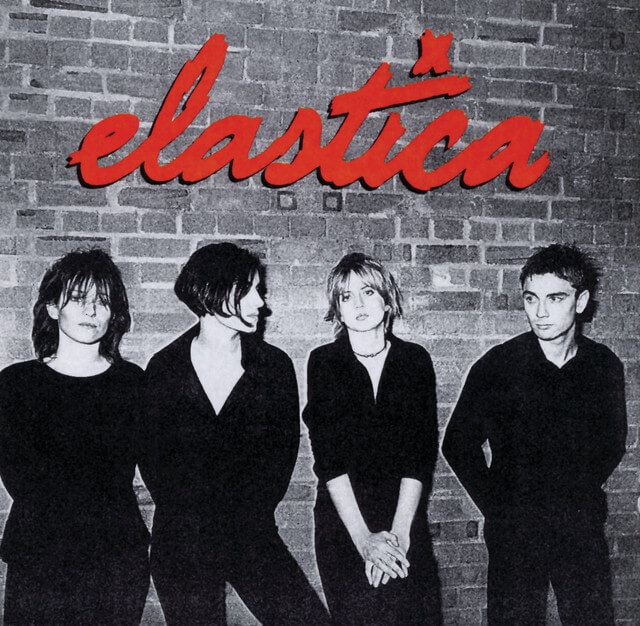 They may have borrowed liberally from some of their primary influences (Wire, The Fall, The Stranglers) and gotten themselves in legal hot water because of it. And frontwoman Justine Frischmann may have taken up more than her fair share of oxygen in the room due to her relationship with Britpop superstar Damon Albarn. But what far outweighs all that tabloid-ready chatter is the sound of this fantastic album. To, appropriately, nab a phrase used by filmmaker Russ Meyer (and British noise rockers Silverfish), the LP unapologetically homes in on the hips, tits, lips and power with songs that celebrate the joys of sex in (and on) an automobile (“Car Song”), sex with groupies (“Line Up”), frustrations with absent lovers (“All-Nighter”) and their inability to keep up in the bedroom (“Stutter”) and brash kiss offs to exes (“Never Here”). All of it is delivered with a curled lip, attitude and the kind of slash-and-burn post-punk that seems to burble to the surface every decade or so. —RH
They may have borrowed liberally from some of their primary influences (Wire, The Fall, The Stranglers) and gotten themselves in legal hot water because of it. And frontwoman Justine Frischmann may have taken up more than her fair share of oxygen in the room due to her relationship with Britpop superstar Damon Albarn. But what far outweighs all that tabloid-ready chatter is the sound of this fantastic album. To, appropriately, nab a phrase used by filmmaker Russ Meyer (and British noise rockers Silverfish), the LP unapologetically homes in on the hips, tits, lips and power with songs that celebrate the joys of sex in (and on) an automobile (“Car Song”), sex with groupies (“Line Up”), frustrations with absent lovers (“All-Nighter”) and their inability to keep up in the bedroom (“Stutter”) and brash kiss offs to exes (“Never Here”). All of it is delivered with a curled lip, attitude and the kind of slash-and-burn post-punk that seems to burble to the surface every decade or so. —RH
24. Björk: Debut (1993)
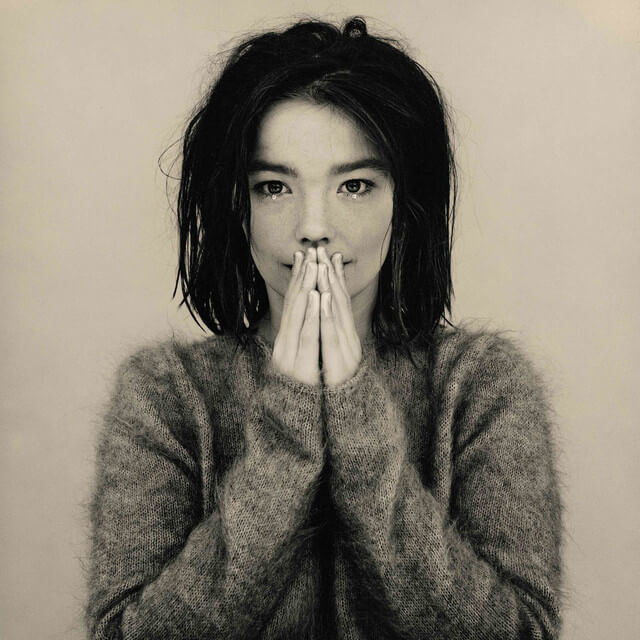 It’s not so much the sounds on this album that make it so startling, even 30 years later. Sure, Björk and producer Nellee Hooper’s sonic palette sparkle with a mad-scientist’s edge, as the pair gleefully mash house music and other electronic/dance elements with pop. But the truth is that underground dance forms had been filtering into the mainstream for years at this point. Debut demands that you take notice because it has all the markings of an artist coming out of the gate as a full-fledged visionary. Of course, Björk technically issued her debut album in 1977 at the ripe old age of 8. But by titling this album as she did, it was a message that she was only just getting started. The world would soon have no choice but to recognize Björk as a creative force of nature, but her essential qualities were on full display right there in the future-classic album opener “Human Behavior”: her dissonant but oddly sweet and approachable sense of harmony, her ability to warp a melody and mold songs as if they were mercury in her hands, and the sense that she was channeling a kind of alien musical intelligence both innocent and wise. As the album advances through songs like “Crying” and “Venus as a Boy,” Björk shows how playful and emotive she could be in the same breath. If you’re going to break the mold, this is the way to do it, and Debut stands as one of music’s ultimate first statements. —Saby Reyes-Kulkarni
It’s not so much the sounds on this album that make it so startling, even 30 years later. Sure, Björk and producer Nellee Hooper’s sonic palette sparkle with a mad-scientist’s edge, as the pair gleefully mash house music and other electronic/dance elements with pop. But the truth is that underground dance forms had been filtering into the mainstream for years at this point. Debut demands that you take notice because it has all the markings of an artist coming out of the gate as a full-fledged visionary. Of course, Björk technically issued her debut album in 1977 at the ripe old age of 8. But by titling this album as she did, it was a message that she was only just getting started. The world would soon have no choice but to recognize Björk as a creative force of nature, but her essential qualities were on full display right there in the future-classic album opener “Human Behavior”: her dissonant but oddly sweet and approachable sense of harmony, her ability to warp a melody and mold songs as if they were mercury in her hands, and the sense that she was channeling a kind of alien musical intelligence both innocent and wise. As the album advances through songs like “Crying” and “Venus as a Boy,” Björk shows how playful and emotive she could be in the same breath. If you’re going to break the mold, this is the way to do it, and Debut stands as one of music’s ultimate first statements. —Saby Reyes-Kulkarni
23. Ice Cube: AmeriKKKa’s Most Wanted (1990)
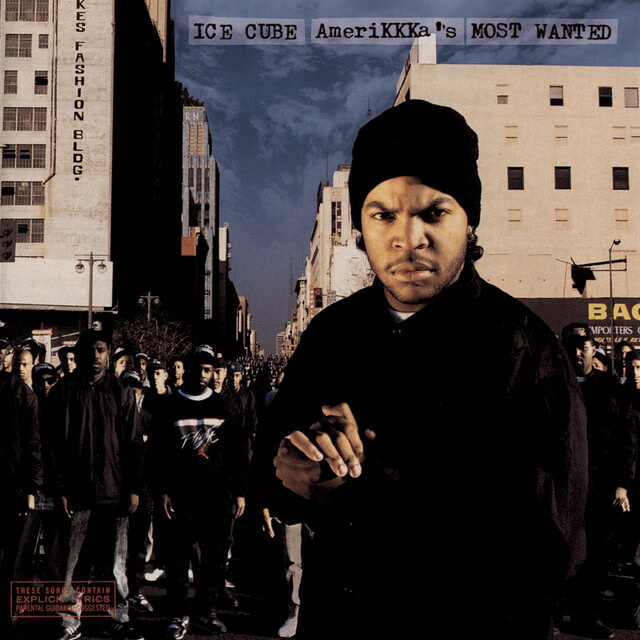 After walking away from N.W.A., the L.A. group that instantly put him in the upper echelon of lyricists and rappers, Ice Cube spent some time in New York, holed up in the studio space of production team the Bomb Squad. He went through their voluminous record collection looking for inspiration and what would become the sound of his first solo album. What they landed on was an album that carried the same density as the Squad’s other famous collaborators Public Enemy but was much more funky. The feel of the beats loosened Cube’s tongue considerably. He remained true to the storytelling vibe he established on Straight Outta Compton with his clear-eyed perspective on life in South Central L.A. but developed a leaner pugnaciousness that helped fuel the war on words with his former partners and cut down to size the fools that dared to question his skills and strength. —RH
After walking away from N.W.A., the L.A. group that instantly put him in the upper echelon of lyricists and rappers, Ice Cube spent some time in New York, holed up in the studio space of production team the Bomb Squad. He went through their voluminous record collection looking for inspiration and what would become the sound of his first solo album. What they landed on was an album that carried the same density as the Squad’s other famous collaborators Public Enemy but was much more funky. The feel of the beats loosened Cube’s tongue considerably. He remained true to the storytelling vibe he established on Straight Outta Compton with his clear-eyed perspective on life in South Central L.A. but developed a leaner pugnaciousness that helped fuel the war on words with his former partners and cut down to size the fools that dared to question his skills and strength. —RH
-

-

-

-

-

-

-

-

-

-

-

-

-

-

-

-

-

-

-

-

-

-

-

-

-

-

-

-

-

-

-

-

-

-

-

-

-

-

-

-

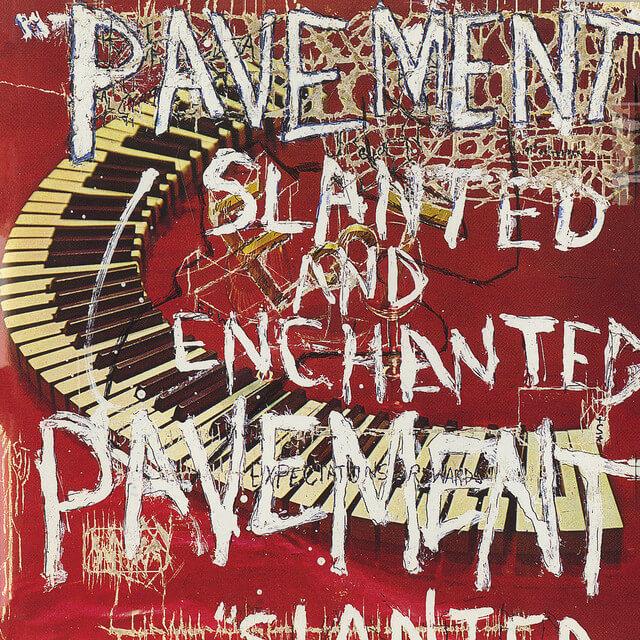 Pavement’s early vinyl scraps were spirited and mysterious and barely hinted at the songwriting skills Stephen Malkmus would later develop. Slanted & Enchanted normalized the ramshackle noise of Swell Maps and early Fall for the high schoolers of the early ’90s, wedding the band’s intentional lo-fi grime to powerful songs like the sluggish anthem “Summer Babe,” the downcast love song “Zurich is Stained” and the heartbreaking “Here.” —Garrett Martin
Pavement’s early vinyl scraps were spirited and mysterious and barely hinted at the songwriting skills Stephen Malkmus would later develop. Slanted & Enchanted normalized the ramshackle noise of Swell Maps and early Fall for the high schoolers of the early ’90s, wedding the band’s intentional lo-fi grime to powerful songs like the sluggish anthem “Summer Babe,” the downcast love song “Zurich is Stained” and the heartbreaking “Here.” —Garrett Martin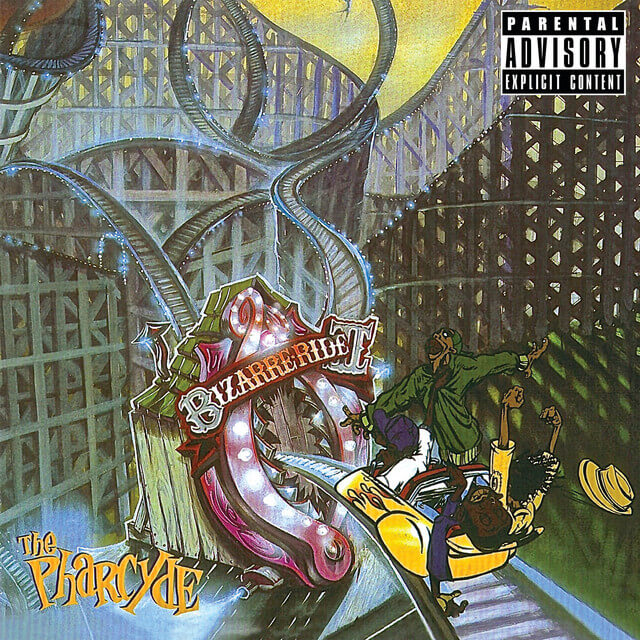 Alt-hip-hop collective The Pharcyde captured the soul of South Central LA on their debut Bizzare Ride II The Pharcyde. There is no doubt that Imani (Emandu Wilcox), Slimkid3 (Trevant Hardson), Bootie Brown (Romye Robinson) and Fatlip (Derrick Stewart) liked to have fun, and their youthful energy bled through in every sarcastic quip and joke made in their 1992 debut. Like “Oh Shit,” with its juvenile tales of drunken escapes and sexual romps, or “Ya Mama,” where the gang spends all four minutes and 20 seconds—a fitting length for this song—cracking “your mom” jokes. Despite being chock-full of comedy, there are still poignant political messages throughout the album—especially in regards to the issues plaguing the Black community at the time, which remains a relevant commentary over 30 years later. For an album that is essentially just four dudes having fun, there is an incredible array of textures baked into each track, like the organist grooves in “Passin’ Me By” and the jazzy keys of “Officer” masterfully mixed with a sweet ‘90s hip hop beat. Bizzare Ride II The Pharcyde was a colorful breath of fresh air that brought the fun back to a hip-hop landscape dominated by gangsta rap. —OA
Alt-hip-hop collective The Pharcyde captured the soul of South Central LA on their debut Bizzare Ride II The Pharcyde. There is no doubt that Imani (Emandu Wilcox), Slimkid3 (Trevant Hardson), Bootie Brown (Romye Robinson) and Fatlip (Derrick Stewart) liked to have fun, and their youthful energy bled through in every sarcastic quip and joke made in their 1992 debut. Like “Oh Shit,” with its juvenile tales of drunken escapes and sexual romps, or “Ya Mama,” where the gang spends all four minutes and 20 seconds—a fitting length for this song—cracking “your mom” jokes. Despite being chock-full of comedy, there are still poignant political messages throughout the album—especially in regards to the issues plaguing the Black community at the time, which remains a relevant commentary over 30 years later. For an album that is essentially just four dudes having fun, there is an incredible array of textures baked into each track, like the organist grooves in “Passin’ Me By” and the jazzy keys of “Officer” masterfully mixed with a sweet ‘90s hip hop beat. Bizzare Ride II The Pharcyde was a colorful breath of fresh air that brought the fun back to a hip-hop landscape dominated by gangsta rap. —OA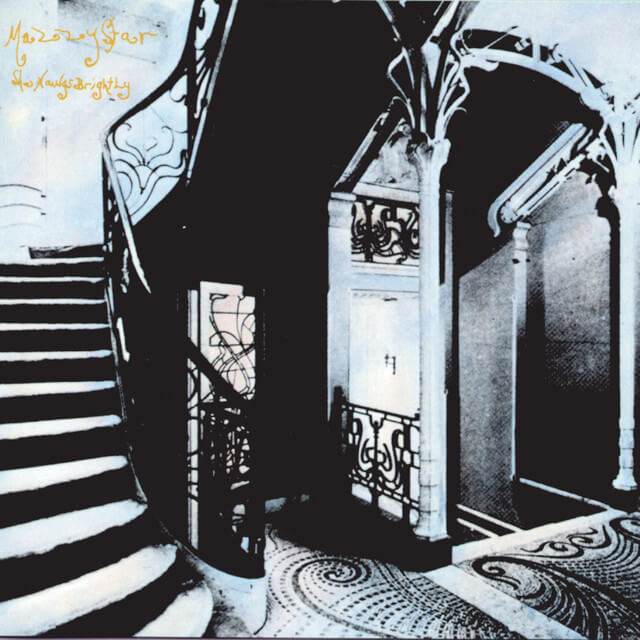 While Mazzy Star’s 1993 sophomore release, So Tonight That I Might See, is the album most people look to in the dream-pop canon, this favoritism is largely propped up by the existence of sublime single “Fade Into You,” while their debut album She Hangs Brightly is a stunning work in and of itself. What So Tonight That I Might See offers in the purest sense of dream-pop vibes, She Hangs Brightly runs circles around it in sheer folk psychedelia and mind-bending bohemia. From the album’s cover shot of architect Victor Horta’s art nouveau stairway at the Hotel Tassel in Brussels, singer Hope Sandoval and multi-instrumentalist David Roback operate in marbled nostalgia and lovelorn bliss. On “Give You My Lovin’” Roback’s slide guitar presents a gorgeous companion for Sandoval’s breathtaking delivery. Like a gentle gypsy, a tambourine rears itself throughout the album, memorably on “Ride It On,” a song that packs the defining gaze of the early ’90s. Largely recorded at San Francisco’s Hyde Street Studios, released on Rough Trade and later re-released by Capitol, She Hangs Brightly forever stands as a testament to the thrill of Sandoval’s heavenly coo, the genius of Roback’s instrumental explorations and of Mazzy Star’s audacity to dream. —AS
While Mazzy Star’s 1993 sophomore release, So Tonight That I Might See, is the album most people look to in the dream-pop canon, this favoritism is largely propped up by the existence of sublime single “Fade Into You,” while their debut album She Hangs Brightly is a stunning work in and of itself. What So Tonight That I Might See offers in the purest sense of dream-pop vibes, She Hangs Brightly runs circles around it in sheer folk psychedelia and mind-bending bohemia. From the album’s cover shot of architect Victor Horta’s art nouveau stairway at the Hotel Tassel in Brussels, singer Hope Sandoval and multi-instrumentalist David Roback operate in marbled nostalgia and lovelorn bliss. On “Give You My Lovin’” Roback’s slide guitar presents a gorgeous companion for Sandoval’s breathtaking delivery. Like a gentle gypsy, a tambourine rears itself throughout the album, memorably on “Ride It On,” a song that packs the defining gaze of the early ’90s. Largely recorded at San Francisco’s Hyde Street Studios, released on Rough Trade and later re-released by Capitol, She Hangs Brightly forever stands as a testament to the thrill of Sandoval’s heavenly coo, the genius of Roback’s instrumental explorations and of Mazzy Star’s audacity to dream. —AS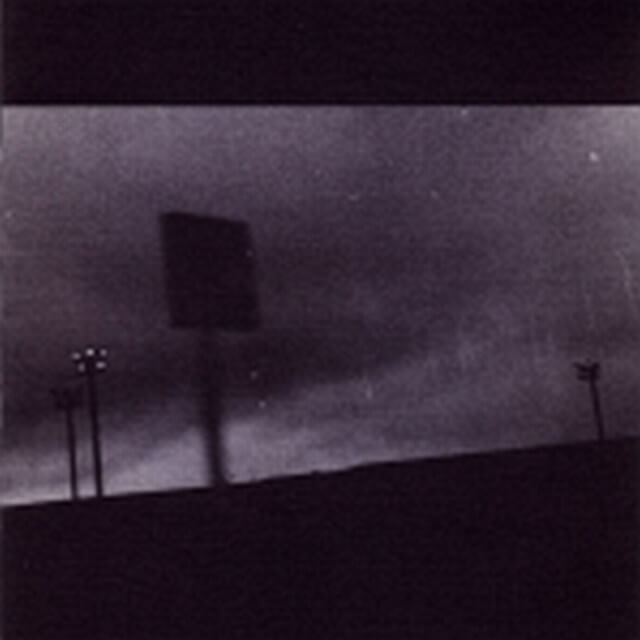 In a world where attention spans continue to shrink and tastes are narrowing, we should be ever thankful that a group like GY!BE is still wandering the earth, writing and performing compositions that are slow, dynamic and can take the better part of a half hour to reach their full potential. It’s an aesthetic the ever-morphing ensemble established immediately with the release of their first proper full-length. Originally issued with drawings, a handbill and a penny that had been flattened by one of the trains that ran past the group’s studio in Montreal, the album played like the emanations from an anarchist cult living literally underground and passing their time performing drawn out jams inspired by tidal schedules, lava flow and the migration patterns of Canadian geese. —RH
In a world where attention spans continue to shrink and tastes are narrowing, we should be ever thankful that a group like GY!BE is still wandering the earth, writing and performing compositions that are slow, dynamic and can take the better part of a half hour to reach their full potential. It’s an aesthetic the ever-morphing ensemble established immediately with the release of their first proper full-length. Originally issued with drawings, a handbill and a penny that had been flattened by one of the trains that ran past the group’s studio in Montreal, the album played like the emanations from an anarchist cult living literally underground and passing their time performing drawn out jams inspired by tidal schedules, lava flow and the migration patterns of Canadian geese. —RH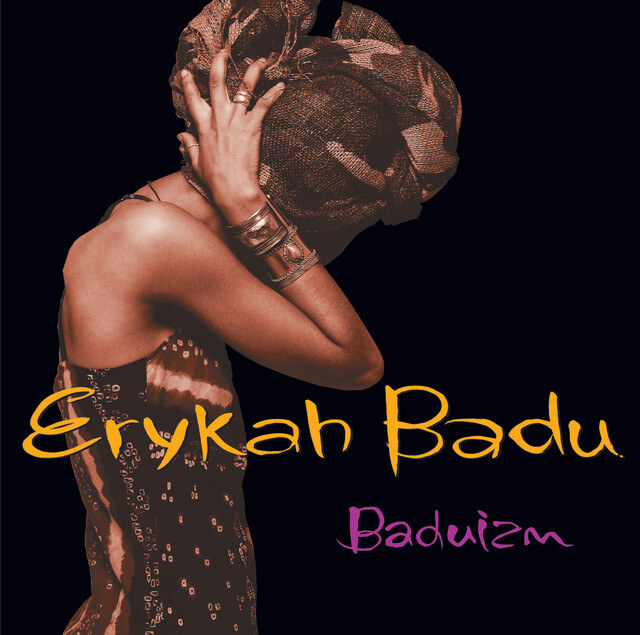 On her sophomore album Mama’s Gun in 2000, Erykah Badu would become a surefire superstar. On her debut, Baduizm, three years prior, her talent was unmistakable. Baduizm featured prolific jazz double bassist Ron Carter, vocalist N’Dambi and production from The Roots. Badu made the album across the United States, laying down tracks in New York City, Philadelphia and Dallas, and critics began drawing comparisons between her and Billie Holiday. Songs like “On & On,” “Otherside of the Game” and “Appletree” helped propel Baduizm into the stratosphere, landing it at a #2 peak on the Billboard 200 and a Grammy Award for Best R&B Album. She was immediately placed in the company of folks like D’Angelo (whom she opened one of her first ever gigs for), Mary J. Blige, Boyz II Men and Maxwell. Badu was merging jazz with R&B and neo-soul, and Baduizm became monumental for turn-of-the-century R&B—and it cemented the Texas singer’s stardom forever. —Matt Mitchell
On her sophomore album Mama’s Gun in 2000, Erykah Badu would become a surefire superstar. On her debut, Baduizm, three years prior, her talent was unmistakable. Baduizm featured prolific jazz double bassist Ron Carter, vocalist N’Dambi and production from The Roots. Badu made the album across the United States, laying down tracks in New York City, Philadelphia and Dallas, and critics began drawing comparisons between her and Billie Holiday. Songs like “On & On,” “Otherside of the Game” and “Appletree” helped propel Baduizm into the stratosphere, landing it at a #2 peak on the Billboard 200 and a Grammy Award for Best R&B Album. She was immediately placed in the company of folks like D’Angelo (whom she opened one of her first ever gigs for), Mary J. Blige, Boyz II Men and Maxwell. Badu was merging jazz with R&B and neo-soul, and Baduizm became monumental for turn-of-the-century R&B—and it cemented the Texas singer’s stardom forever. —Matt Mitchell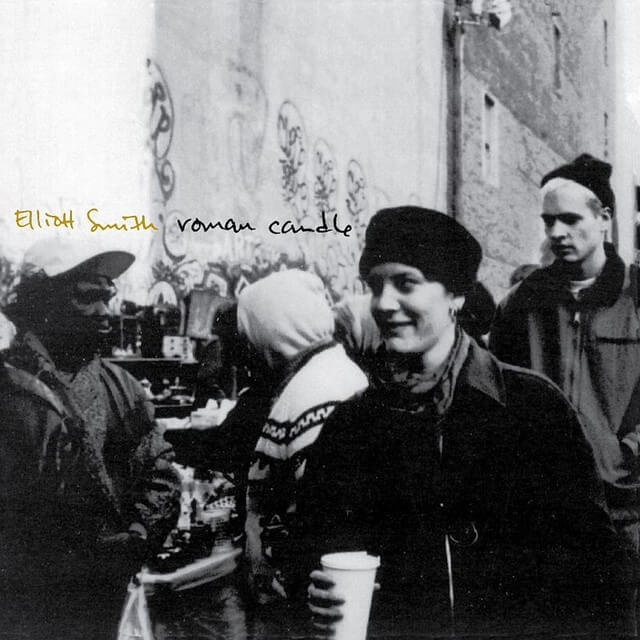 Before Portland’s greatest son made his debut album Roman Candle in 1994, he’d already formed the band Heatmiser with his Hampshire College classmate Neil Gust and put out a studio album (and a second LP would come just a few months after Roman Candle). The story goes that Elliott’s girlfriend had convinced him to take a bunch of his four-track-record songs and send them to Cavity Search Records. The label loved the tunes and gave him an album deal—and it changed everything. Roman Candle is magnificent and, on some days, some of Elliott’s finest work. Before Good Will Hunting ballooned Either/Or into an epic token of ‘90s folk rock, Roman Candle made Elliott a lo-fi pioneer. It’s got such a raw, eclipsing sound that it does feel like a debut record, like a batch of demos. But even his demos sounded better than most folks’ greatest endeavors. The three-part “No Name” sequence in the middle of the record remains a highlight in his catalog, especially “No Name #3.” Elsewhere, “Last Call” and “Condor Ave” and the album’s title track are beautiful, gut-wrenching acoustic compositions that paint a pretty deft portrait of where Elliott was going. The work wasn’t flawless, but his talent was. —MM
Before Portland’s greatest son made his debut album Roman Candle in 1994, he’d already formed the band Heatmiser with his Hampshire College classmate Neil Gust and put out a studio album (and a second LP would come just a few months after Roman Candle). The story goes that Elliott’s girlfriend had convinced him to take a bunch of his four-track-record songs and send them to Cavity Search Records. The label loved the tunes and gave him an album deal—and it changed everything. Roman Candle is magnificent and, on some days, some of Elliott’s finest work. Before Good Will Hunting ballooned Either/Or into an epic token of ‘90s folk rock, Roman Candle made Elliott a lo-fi pioneer. It’s got such a raw, eclipsing sound that it does feel like a debut record, like a batch of demos. But even his demos sounded better than most folks’ greatest endeavors. The three-part “No Name” sequence in the middle of the record remains a highlight in his catalog, especially “No Name #3.” Elsewhere, “Last Call” and “Condor Ave” and the album’s title track are beautiful, gut-wrenching acoustic compositions that paint a pretty deft portrait of where Elliott was going. The work wasn’t flawless, but his talent was. —MM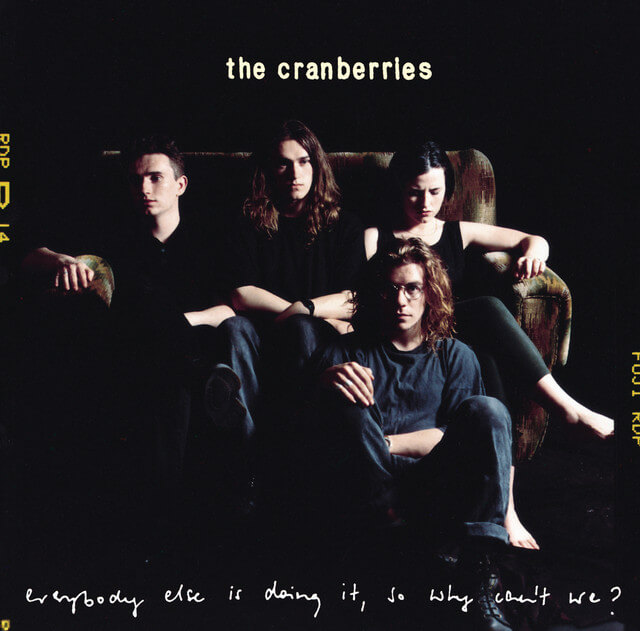 Before they were Irish pop-rock figureheads, the Cranberries—led by the late vocalist Dolores O’Riordan and guitarist Noel Hogan—were clawing at potential stardom on their debut album, Everybody Else Is Doing It, So Why Can’t We? The album is a beautiful first chapter that soared to the Top-20 on the Billboard 200 and stayed there for 130 weeks. Not only does the record contain some of the best Cranberries songs, it boasts two of the greatest alternative songs ever: “Dreams” and “Linger.” The latter has found a recent resurgence through meme culture, though it was a Top-10 hit on the Hot 100 when it came out 30 years ago. Likewise, “Dreams” hit the charts, too, and has become symbolic as a definitive song in the Cranberries’ catalog. Not immediately the smash hit we all consider it to be, Everybody Else Is Doing It, So Why Can’t We? became just the fifth rock album to reach #1 on the UK and Irish charts a year after its release. 30 years later, O’Riordan’s vocal performance is what shoulders this record into immortality. A beacon of light fixture at the center of every track’s storm, every line she sings pierces perfection and sticks with you. —MM
Before they were Irish pop-rock figureheads, the Cranberries—led by the late vocalist Dolores O’Riordan and guitarist Noel Hogan—were clawing at potential stardom on their debut album, Everybody Else Is Doing It, So Why Can’t We? The album is a beautiful first chapter that soared to the Top-20 on the Billboard 200 and stayed there for 130 weeks. Not only does the record contain some of the best Cranberries songs, it boasts two of the greatest alternative songs ever: “Dreams” and “Linger.” The latter has found a recent resurgence through meme culture, though it was a Top-10 hit on the Hot 100 when it came out 30 years ago. Likewise, “Dreams” hit the charts, too, and has become symbolic as a definitive song in the Cranberries’ catalog. Not immediately the smash hit we all consider it to be, Everybody Else Is Doing It, So Why Can’t We? became just the fifth rock album to reach #1 on the UK and Irish charts a year after its release. 30 years later, O’Riordan’s vocal performance is what shoulders this record into immortality. A beacon of light fixture at the center of every track’s storm, every line she sings pierces perfection and sticks with you. —MM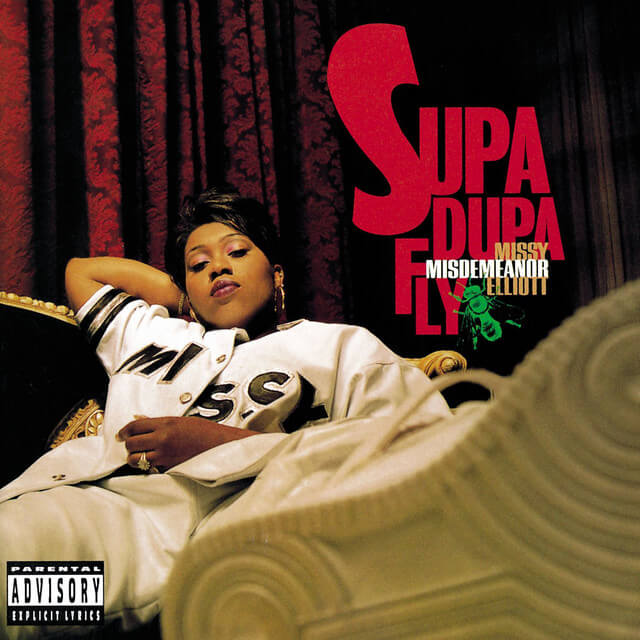 I remember hearing Supa Dupa Fly for the first time and being swept off my feet, having never experienced such a perfect rap album before. Missy Elliott got her start with Timabaland writing songs for Aaliyah’s record One in a Million in 1996 and, a year later, the two musicians made Missy’s first record. Supa Dupa Fly features everyone from Busta Rhymes to Ginuwine to Lil’ Kim to Aaliyah, and Missy even executive produced the joint herself (alongside Timbaland). The work is steadfast and hypnotic, as tracks like “Sock It 2 Me,” “Hit Em Wit Da Hee,” “The Rain (Supa Dupa Fly)” and “Best Friends” are just unbeatable benchmarks of avant-rap and experimental funk. The successes of the record—which included a tour with Jay-Z and a #3 peak on the Billboard 200—vaulted Missy into the echelons of rap history, and she’s remained one of the greatest MCs of her generation. Few rappers have ever established themselves in such a punctuated manner on their first outing but, then again, there’s no one like Missy Elliott. —MM
I remember hearing Supa Dupa Fly for the first time and being swept off my feet, having never experienced such a perfect rap album before. Missy Elliott got her start with Timabaland writing songs for Aaliyah’s record One in a Million in 1996 and, a year later, the two musicians made Missy’s first record. Supa Dupa Fly features everyone from Busta Rhymes to Ginuwine to Lil’ Kim to Aaliyah, and Missy even executive produced the joint herself (alongside Timbaland). The work is steadfast and hypnotic, as tracks like “Sock It 2 Me,” “Hit Em Wit Da Hee,” “The Rain (Supa Dupa Fly)” and “Best Friends” are just unbeatable benchmarks of avant-rap and experimental funk. The successes of the record—which included a tour with Jay-Z and a #3 peak on the Billboard 200—vaulted Missy into the echelons of rap history, and she’s remained one of the greatest MCs of her generation. Few rappers have ever established themselves in such a punctuated manner on their first outing but, then again, there’s no one like Missy Elliott. —MM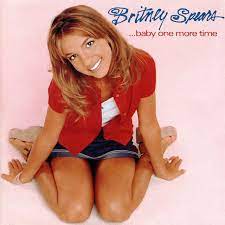 We all know it. The pigtails. The mini skirt. The complete schoolgirl fantasy. However, when a 16-year-old future pop phenomenon grabbed that narrative and made it her own, the mainstream musical landscape was altered forever. A star straight from the crib, Spears spent her entire childhood crafting a persona fit for a pop princess performing in the Mickey Mouse Club, appearing in Broadway shows and even on Star Search. It was practically written in the stars that she was destined to become a megastar, and she proved it on …Baby One More Time. With her distinctive mellowed-out sexy vocals and unstoppable presence, the album’s lead single, “…Baby One More Time,” blasted her to international success. While it’s impossible to compare the caliber of the other tracks to such a mega-hit, the dial-up pop ballad “Sometimes” and the bubblegum pop fantasy “(You Drive Me) Crazy” proved that Spears’s vocal ability was one to be reckoned with. —OA
We all know it. The pigtails. The mini skirt. The complete schoolgirl fantasy. However, when a 16-year-old future pop phenomenon grabbed that narrative and made it her own, the mainstream musical landscape was altered forever. A star straight from the crib, Spears spent her entire childhood crafting a persona fit for a pop princess performing in the Mickey Mouse Club, appearing in Broadway shows and even on Star Search. It was practically written in the stars that she was destined to become a megastar, and she proved it on …Baby One More Time. With her distinctive mellowed-out sexy vocals and unstoppable presence, the album’s lead single, “…Baby One More Time,” blasted her to international success. While it’s impossible to compare the caliber of the other tracks to such a mega-hit, the dial-up pop ballad “Sometimes” and the bubblegum pop fantasy “(You Drive Me) Crazy” proved that Spears’s vocal ability was one to be reckoned with. —OA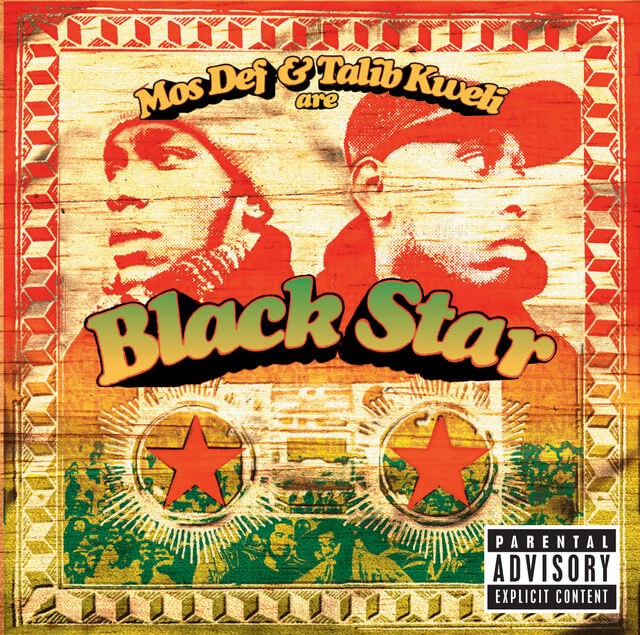 New York rappers Mos Def (known now as Yasiin Bey) and Talib Kweli were set to launch their own individual careers when they began crossing paths within the hip-hop community and immediately recognized a kindred spirit. They put a pause on their solo work and opted instead to lean into their obvious chemistry, joining forces under the pointed name Black Star. The duo’s first album was subtly explosive—a creation by two young men with a deep understanding of the history of their chosen art-form and a pointed perspective on the plight of the Black community in the U.S. They dared to challenge Black women to eschew Western standards of beauty and call out the continued violence befalling many of their fellow artists and still left time out to include some anthems that took joy in each other’s company and in the nuances of the English language. —RH
New York rappers Mos Def (known now as Yasiin Bey) and Talib Kweli were set to launch their own individual careers when they began crossing paths within the hip-hop community and immediately recognized a kindred spirit. They put a pause on their solo work and opted instead to lean into their obvious chemistry, joining forces under the pointed name Black Star. The duo’s first album was subtly explosive—a creation by two young men with a deep understanding of the history of their chosen art-form and a pointed perspective on the plight of the Black community in the U.S. They dared to challenge Black women to eschew Western standards of beauty and call out the continued violence befalling many of their fellow artists and still left time out to include some anthems that took joy in each other’s company and in the nuances of the English language. —RH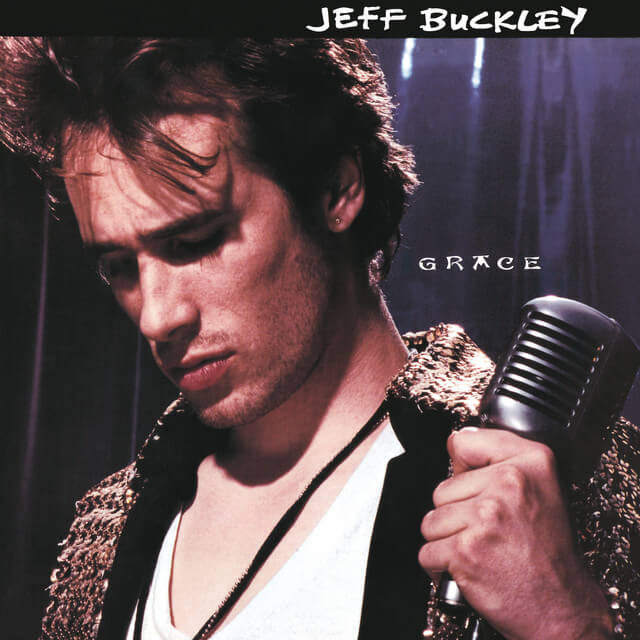 There is something about the plight of artists riddled with tragedy who create some of the most beautiful albums. After a decade of being a session guitarist, Jeff Buckley emerged with his only studio album in 1994 before his tragic death only three years later. Grace was the legacy of a young man gifted with a bloodline of musical talent wrestling with the pain of having an absent father—’60s folk singer Tim Buckley. Jeff found the beauty in pain on Grace with his moving cover of “Hallelujah,” which remains his most well-known track. The vocal intimacy strips you bare from the first sigh he breathes, as the opening notes ring out and the unapologetically naked production from every delicate pluck of the strings. Far from getting the flowers it deserved in Buckley’s lifetime, the tortured yet romantic album gave us the cries of anguish in “Lover, You Should Come Over,” a gorgeous rendition of Nina Simone’s “Lilac Wine” and the languid beauty of “Grace.” Fighting tirelessly to stand out from his father’s shadow, Buckley found himself by intimately sharing his soul and pouring it into every note on Grace. His prowess as a musician was always the root of his guitar-centric music, but the delicacy with which he feels emotion in Grace is something that gets under your skin and won’t ever crawl out. —OA
There is something about the plight of artists riddled with tragedy who create some of the most beautiful albums. After a decade of being a session guitarist, Jeff Buckley emerged with his only studio album in 1994 before his tragic death only three years later. Grace was the legacy of a young man gifted with a bloodline of musical talent wrestling with the pain of having an absent father—’60s folk singer Tim Buckley. Jeff found the beauty in pain on Grace with his moving cover of “Hallelujah,” which remains his most well-known track. The vocal intimacy strips you bare from the first sigh he breathes, as the opening notes ring out and the unapologetically naked production from every delicate pluck of the strings. Far from getting the flowers it deserved in Buckley’s lifetime, the tortured yet romantic album gave us the cries of anguish in “Lover, You Should Come Over,” a gorgeous rendition of Nina Simone’s “Lilac Wine” and the languid beauty of “Grace.” Fighting tirelessly to stand out from his father’s shadow, Buckley found himself by intimately sharing his soul and pouring it into every note on Grace. His prowess as a musician was always the root of his guitar-centric music, but the delicacy with which he feels emotion in Grace is something that gets under your skin and won’t ever crawl out. —OA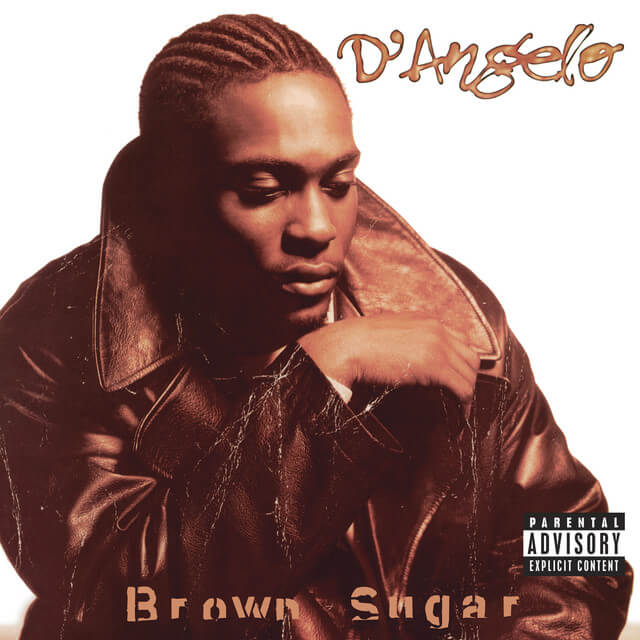 D’Angelo has only put out three records across the last 28 years, but each one has been a masterpiece that, you could argue, have all been 10 out of 10s. Starting with Brown Sugar way back in 1995, the Richmond singer and multi-instrumentalist established himself as the best R&B performer of his generation. The record went platinum within a year of coming out, spending 65 weeks on the Billboard 200. Aside from some guitar and mixing work from Bob Power, D’Angelo wrote, arranged, performed and produced every single instrument on Brown Sugar. He was on his Prince shit and, yet, even that feels like an unfair comparison—no one was doing it like D’Angelo in the late-1990s. He was a pioneer of the neo-soul movement, enriching a dormant R&B scene with sensual, terrific instrumentation and silk-spun vocals. I’m still not so sure that TLC’s CrazySexyCool should have outmuscled D’Angelo for Best R&B at the 1996 Grammy Awards, but he would get his due six years later with his follow-up LP Voodoo. It’s been nine years since D’Angelo put out an album, but whatever comes next for him will undoubtedly be another glimpse of his always enduring stardom—and you can trace that back to Brown Sugar. —MM
D’Angelo has only put out three records across the last 28 years, but each one has been a masterpiece that, you could argue, have all been 10 out of 10s. Starting with Brown Sugar way back in 1995, the Richmond singer and multi-instrumentalist established himself as the best R&B performer of his generation. The record went platinum within a year of coming out, spending 65 weeks on the Billboard 200. Aside from some guitar and mixing work from Bob Power, D’Angelo wrote, arranged, performed and produced every single instrument on Brown Sugar. He was on his Prince shit and, yet, even that feels like an unfair comparison—no one was doing it like D’Angelo in the late-1990s. He was a pioneer of the neo-soul movement, enriching a dormant R&B scene with sensual, terrific instrumentation and silk-spun vocals. I’m still not so sure that TLC’s CrazySexyCool should have outmuscled D’Angelo for Best R&B at the 1996 Grammy Awards, but he would get his due six years later with his follow-up LP Voodoo. It’s been nine years since D’Angelo put out an album, but whatever comes next for him will undoubtedly be another glimpse of his always enduring stardom—and you can trace that back to Brown Sugar. —MM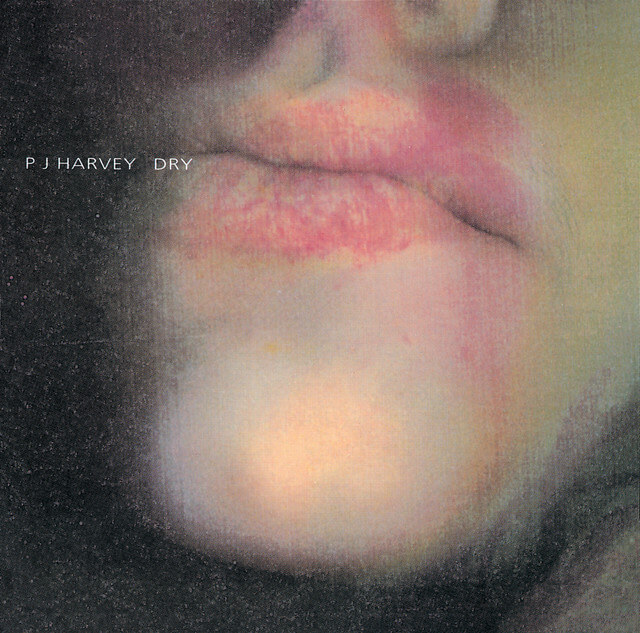 It’s rare to come across a debut album that sounds so fully fleshed out, but Harvey had been preparing for the chance to record her own material for years, and wasn’t about to waste it. At this point, “PJ Harvey” was still a band, consisting of its namesake, bassist Steve Vaughn and drummer Rob Ellis. Believing they would never get another opportunity to make a record, they made what, even now, sounds like a core thesis statement that Harvey would only embellish with each subsequent release. Though that means the production remains fairly simple, with most of the instruments played by the core trio, it’s impressive what they accomplished with their limited resources. The theme of gender roles that Harvey would revisit again comes up early, evident in the sing-along playfulness of singles “Dress” and “Sheela-Na-Gig” (“Heard it before, no more!”). Elsewhere, the immense atmosphere of the incredible “Plants and Rags” and “Water” showed Polly had the songwriting and arranging chops of someone who had been doing it professionally for decades. Sure, lots of people had picked up a guitar and made compelling music before, but never quite like this. Though it’s an easy statement to make when we have hindsight and a whole discography to back it up, let’s make it: Even if this had been the only thing PJ Harvey released, as they’d believed it would be, we’d still regard it as essential. —Elise Soutar
It’s rare to come across a debut album that sounds so fully fleshed out, but Harvey had been preparing for the chance to record her own material for years, and wasn’t about to waste it. At this point, “PJ Harvey” was still a band, consisting of its namesake, bassist Steve Vaughn and drummer Rob Ellis. Believing they would never get another opportunity to make a record, they made what, even now, sounds like a core thesis statement that Harvey would only embellish with each subsequent release. Though that means the production remains fairly simple, with most of the instruments played by the core trio, it’s impressive what they accomplished with their limited resources. The theme of gender roles that Harvey would revisit again comes up early, evident in the sing-along playfulness of singles “Dress” and “Sheela-Na-Gig” (“Heard it before, no more!”). Elsewhere, the immense atmosphere of the incredible “Plants and Rags” and “Water” showed Polly had the songwriting and arranging chops of someone who had been doing it professionally for decades. Sure, lots of people had picked up a guitar and made compelling music before, but never quite like this. Though it’s an easy statement to make when we have hindsight and a whole discography to back it up, let’s make it: Even if this had been the only thing PJ Harvey released, as they’d believed it would be, we’d still regard it as essential. —Elise Soutar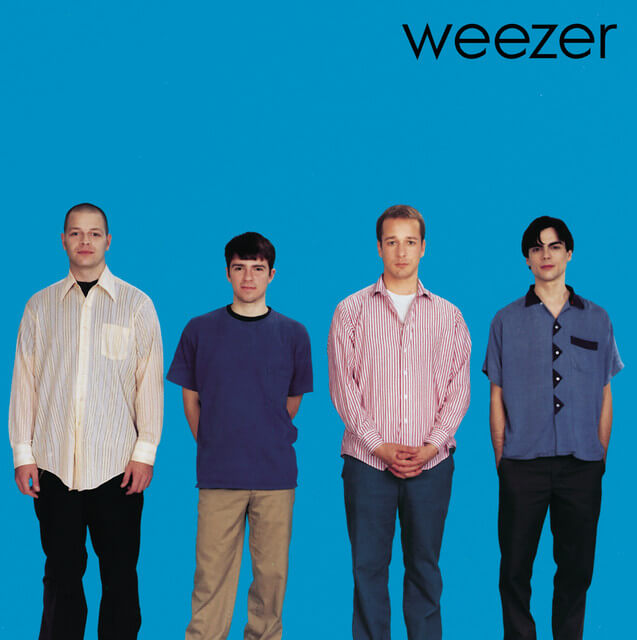 Affectionately (and properly) referred to as the Blue Album, Weezer’s debut is, without a doubt, one of the best rock records of the 1990s altogether. In terms of first efforts, it’s #1 with a bullet. The LA quartet—Rivers Cuomo, Patrick Wilson, Brian Bell and Matt Sharp—made something truly catchy and immaculate. It wasn’t quite as alternative as what Nirvana, Pearl Jam and Alice in Chains were doing, as it was radio-friendly enough to make a big splash. But, regardless, it’s still an alt-rock gem of massive proportions. I mean, just look at the singles: “Undone – The Sweater Song,” “Buddy Holly” and “Say It Ain’t So.” From a quality perspective, Weezer haven’t even been able to match that three-song run. Factor album cuts like “My Name is Jonas,” “Surf Wax America” and “Holiday” into the equation and you’ve got a masterpiece on your hands. Cuomo established himself as one of the best living pop songwriters and he would carry that into the making of the band’s follow-up record Pinkerton (on recent albums, though, not so much). The Blue Album closes with “Only in Dreams,” one of the finest alt-rock epics ever. Even now, 29 years later, how these 10 songs haven’t been around forever amazes me; the whole album sounds like a time capsule inspired by everything from The Crickets to Jan & Dean to The Clash. Weezer’s first record is an exodus of pop construction, a perfect collection ensconced in guitar-focused instrumentation and clever lyricism. This is what brilliance sounds like. —MM
Affectionately (and properly) referred to as the Blue Album, Weezer’s debut is, without a doubt, one of the best rock records of the 1990s altogether. In terms of first efforts, it’s #1 with a bullet. The LA quartet—Rivers Cuomo, Patrick Wilson, Brian Bell and Matt Sharp—made something truly catchy and immaculate. It wasn’t quite as alternative as what Nirvana, Pearl Jam and Alice in Chains were doing, as it was radio-friendly enough to make a big splash. But, regardless, it’s still an alt-rock gem of massive proportions. I mean, just look at the singles: “Undone – The Sweater Song,” “Buddy Holly” and “Say It Ain’t So.” From a quality perspective, Weezer haven’t even been able to match that three-song run. Factor album cuts like “My Name is Jonas,” “Surf Wax America” and “Holiday” into the equation and you’ve got a masterpiece on your hands. Cuomo established himself as one of the best living pop songwriters and he would carry that into the making of the band’s follow-up record Pinkerton (on recent albums, though, not so much). The Blue Album closes with “Only in Dreams,” one of the finest alt-rock epics ever. Even now, 29 years later, how these 10 songs haven’t been around forever amazes me; the whole album sounds like a time capsule inspired by everything from The Crickets to Jan & Dean to The Clash. Weezer’s first record is an exodus of pop construction, a perfect collection ensconced in guitar-focused instrumentation and clever lyricism. This is what brilliance sounds like. —MM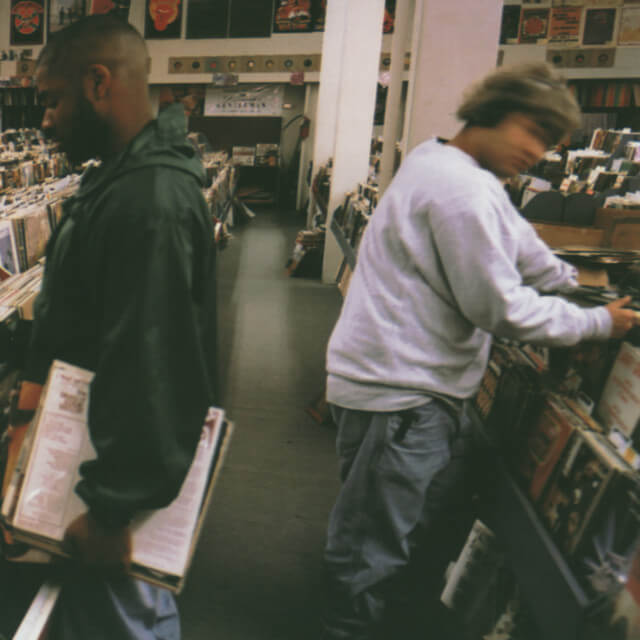 While I can’t bring myself to agree that Josh Davis, the artist who has been making music for nearly 30 years as DJ Shadow, peaked way too early, I can understand the bias. His first full-length Endtroducing….. is just that good. After the promise of his early mixtapes and singles, Davis put his best foot forward with his debut. He cracked open his voluminous record collection and used the wax to build Bomb Squad-level skyscrapers of sound. Each of the tracks on this album is rooted in hip-hop but reaches out into other realms of jazz, downtempo, funk and dub with long, wired up tentacles and devilish sense of humor. Breaking down every last sample used on the album does seem fun, but a better use of one’s time is to just let Davis take you on his personal journey into sound and soul. —RH
While I can’t bring myself to agree that Josh Davis, the artist who has been making music for nearly 30 years as DJ Shadow, peaked way too early, I can understand the bias. His first full-length Endtroducing….. is just that good. After the promise of his early mixtapes and singles, Davis put his best foot forward with his debut. He cracked open his voluminous record collection and used the wax to build Bomb Squad-level skyscrapers of sound. Each of the tracks on this album is rooted in hip-hop but reaches out into other realms of jazz, downtempo, funk and dub with long, wired up tentacles and devilish sense of humor. Breaking down every last sample used on the album does seem fun, but a better use of one’s time is to just let Davis take you on his personal journey into sound and soul. —RH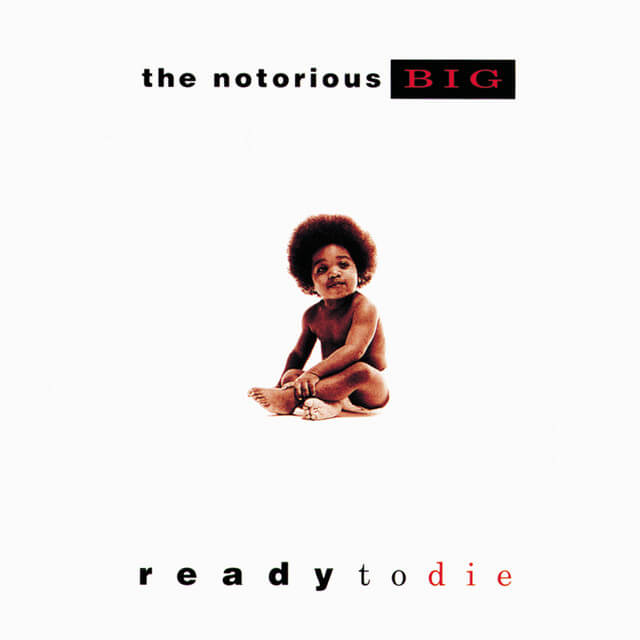 I discovered Notorious B.I.G. for the first time when I was 12 years old and heard “Big Poppa” in Superbad, and I was blown away by the production, by the flow, by the silk-spun groove. It was so smooth yet danceable to no end. Ready to Die being the only album released during Biggie’s lifetime is still as heartbreaking as ever, but what an album to stake your claim on. “Juicy” remains, for my money, the greatest lead single from a hip-hop album ever, and he followed it up with the equally brilliant “Big Poppa.” Throw “One More Chance” on top of that and you’ve got a trio of tracks that go toe-to-toe with any three songs made by anyone in rap history. Immediately, Biggie established himself as one of the greatest storytellers in modern music, something dashingly clear on “Juicy,” a rags-to-riches tale where he chronicles a childhood spent in poverty, being young and dealing drugs, committing crimes and then, of course, tasting success for the first time. To start your career with such a proclamation, this announcement of your stardom before even hitting the Billboard charts, was such a flex that would turn into a lifetime and a legacy of adoration. Had Biggie not been taken from us so soon, who knows what the landscape of rap would look like right now. I’d bet that, without a doubt, the conversation around who the greatest MC of all time is isn’t even a discussion. —MM
I discovered Notorious B.I.G. for the first time when I was 12 years old and heard “Big Poppa” in Superbad, and I was blown away by the production, by the flow, by the silk-spun groove. It was so smooth yet danceable to no end. Ready to Die being the only album released during Biggie’s lifetime is still as heartbreaking as ever, but what an album to stake your claim on. “Juicy” remains, for my money, the greatest lead single from a hip-hop album ever, and he followed it up with the equally brilliant “Big Poppa.” Throw “One More Chance” on top of that and you’ve got a trio of tracks that go toe-to-toe with any three songs made by anyone in rap history. Immediately, Biggie established himself as one of the greatest storytellers in modern music, something dashingly clear on “Juicy,” a rags-to-riches tale where he chronicles a childhood spent in poverty, being young and dealing drugs, committing crimes and then, of course, tasting success for the first time. To start your career with such a proclamation, this announcement of your stardom before even hitting the Billboard charts, was such a flex that would turn into a lifetime and a legacy of adoration. Had Biggie not been taken from us so soon, who knows what the landscape of rap would look like right now. I’d bet that, without a doubt, the conversation around who the greatest MC of all time is isn’t even a discussion. —MM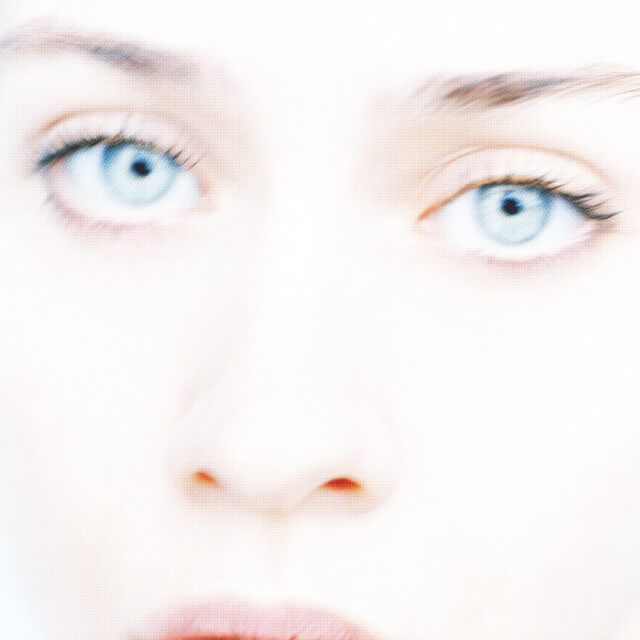 The ’90s were a peak time to be an angsty teen girl. With riot grrl taking over and Alanis Morissette telling men what they oughta know, it was the perfect moment to enjoy the grit of female rage. However, hidden in the grime-covered musical landscape of the grunge era, Fiona Apple was taking a different approach to that anger. The jazzy poetry of Apple’s debut album Tidal is a fully formed deep-dive into the female condition. Writing most of the songs at only 17 years old, she proved the depth women could carry at such a young age—and in a world where female emotions are belittled and disregarded no less. “The Child Is Gone” is a raw expression of the harsh reality of love in adult relationships, while Apple sings about sexual empowerment in “Criminal.” She exposes her forced maturity in “Sullen Girl,” singing, “But he washed me ‘shore and he took my pearl / And left an empty shell of me” in an all too familiar musing of exploitation. The quiet contemplation of Tidal remains a mecca of womanhood for all the girls out there who just want to be heard. —OA
The ’90s were a peak time to be an angsty teen girl. With riot grrl taking over and Alanis Morissette telling men what they oughta know, it was the perfect moment to enjoy the grit of female rage. However, hidden in the grime-covered musical landscape of the grunge era, Fiona Apple was taking a different approach to that anger. The jazzy poetry of Apple’s debut album Tidal is a fully formed deep-dive into the female condition. Writing most of the songs at only 17 years old, she proved the depth women could carry at such a young age—and in a world where female emotions are belittled and disregarded no less. “The Child Is Gone” is a raw expression of the harsh reality of love in adult relationships, while Apple sings about sexual empowerment in “Criminal.” She exposes her forced maturity in “Sullen Girl,” singing, “But he washed me ‘shore and he took my pearl / And left an empty shell of me” in an all too familiar musing of exploitation. The quiet contemplation of Tidal remains a mecca of womanhood for all the girls out there who just want to be heard. —OA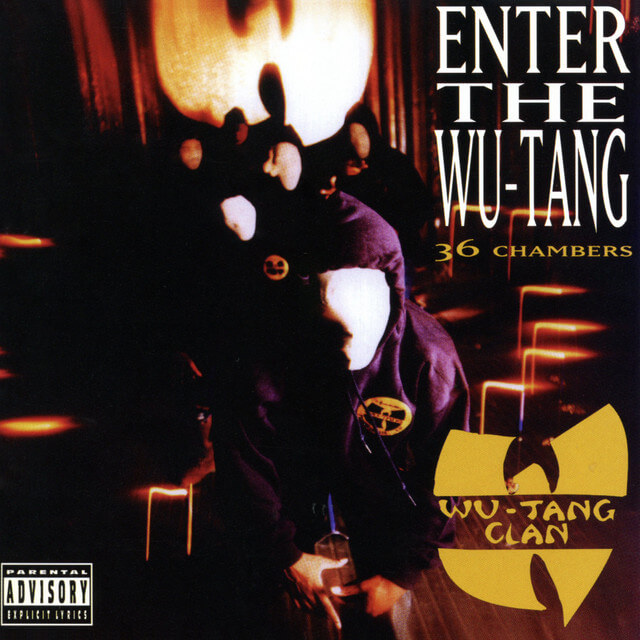 Into one of the greatest years in hip-hop’s half-century history came the Wu-Tang Clan, a rough assemblage of MCs zonked on a cocktail of urban blight, kung fu movies and scratchy soul singles from their grandparent’s record collections. Leading the charge was a producer who called himself the RZA, a survivor of the rap industry who rejected his past attempts at hit-making and instead tried to make music that sounded elegant, earthy and more than a little dangerous. Falling in behind him was a cadre of rappers who brought a cock-eyed flow and healthy draught of surreality to the proceedings. On paper, the numbers don’t seem to add up, but in the studio, RZA plays three-dimensional chess with the various components. Like his production work, seemingly disparate threads are tied together to create something strong and enduring. —RH
Into one of the greatest years in hip-hop’s half-century history came the Wu-Tang Clan, a rough assemblage of MCs zonked on a cocktail of urban blight, kung fu movies and scratchy soul singles from their grandparent’s record collections. Leading the charge was a producer who called himself the RZA, a survivor of the rap industry who rejected his past attempts at hit-making and instead tried to make music that sounded elegant, earthy and more than a little dangerous. Falling in behind him was a cadre of rappers who brought a cock-eyed flow and healthy draught of surreality to the proceedings. On paper, the numbers don’t seem to add up, but in the studio, RZA plays three-dimensional chess with the various components. Like his production work, seemingly disparate threads are tied together to create something strong and enduring. —RH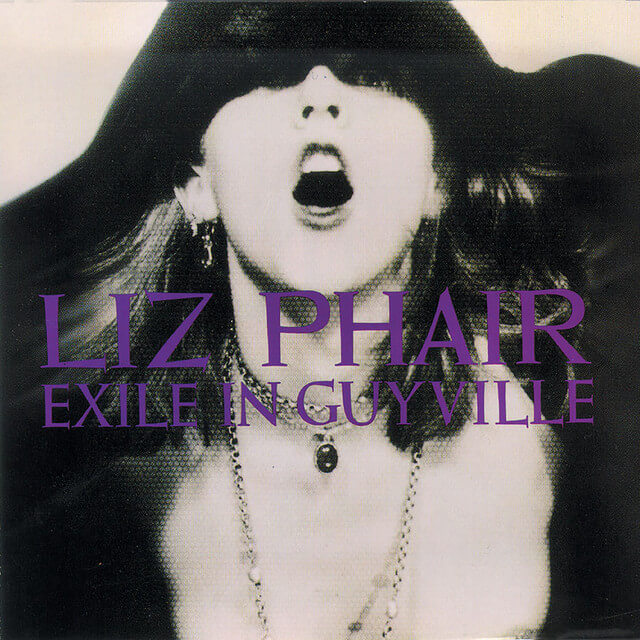 Much has been said about Liz Phair’s ball-busting brashness (and rightly so). But in addition to
Much has been said about Liz Phair’s ball-busting brashness (and rightly so). But in addition to 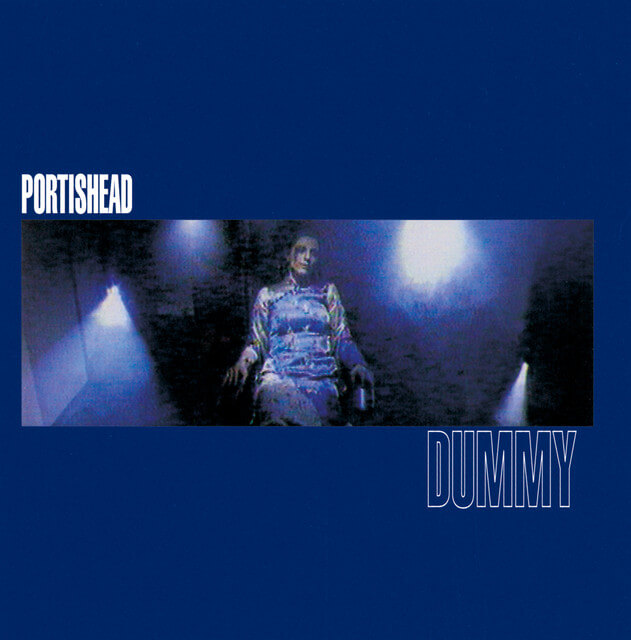 It’s lucky that the dysfunctionally sad Beth Gibbons gets as much synergy out of her genius samplers Adrian Utley and Geoff Barrow as she does. Occasionally she’s genius herself: the way she spills the “Sour Times” chorus “nobody looooooooooooves meeee / It’s true” is almost parodic before cheekily pulling back: “…not like you do.” And few depressives could’ve matched the sexiness of that clanging-haunting Lalo Schifrin sample. But Gibbons’ whispery contours were crucial hooks for mood-setting horror (“Numb”), orchestral Cowboy Junkies (“It’s a Fire”), and a scratched-up spaghetti Western (“Wandering Star”). And when the dust-caked soul ballad “Glory Box” called for a raunchy guitar solo, her band stepped up to the plate. —Dan Weiss
It’s lucky that the dysfunctionally sad Beth Gibbons gets as much synergy out of her genius samplers Adrian Utley and Geoff Barrow as she does. Occasionally she’s genius herself: the way she spills the “Sour Times” chorus “nobody looooooooooooves meeee / It’s true” is almost parodic before cheekily pulling back: “…not like you do.” And few depressives could’ve matched the sexiness of that clanging-haunting Lalo Schifrin sample. But Gibbons’ whispery contours were crucial hooks for mood-setting horror (“Numb”), orchestral Cowboy Junkies (“It’s a Fire”), and a scratched-up spaghetti Western (“Wandering Star”). And when the dust-caked soul ballad “Glory Box” called for a raunchy guitar solo, her band stepped up to the plate. —Dan Weiss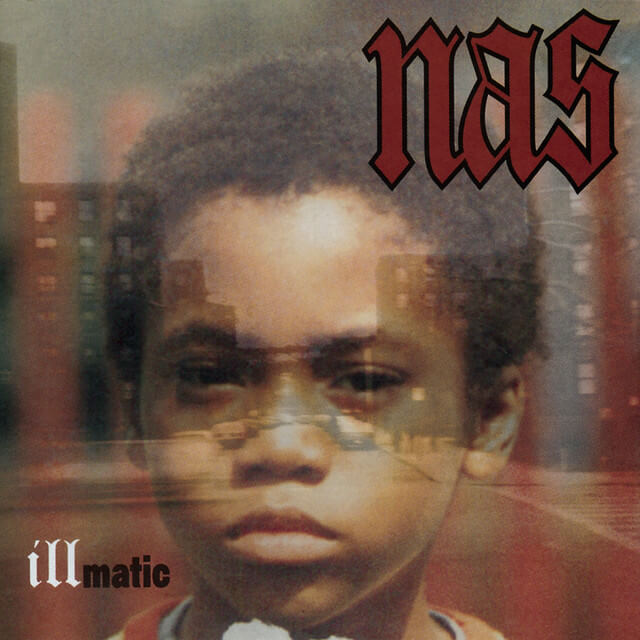 For nearly 30 years, Nasir bin Olu Dara Jones has been trying to live down and live up to the brilliance of his first full-length. It’s a lot for any artist to bear, but it says so much about how Illmatic landed in the hip-hop world like a meteorite. A nimble and poetic MC, Nas caught the attention of early mentor Large Professor who helped him craft this LP with the crucial beats and assistance of some of the best beat makers around: DJ Premier, Q-Tip and Pete Rock. Nas rose to the occasion, painting vivid lyrical murals of street life in his native Queens and the struggles of the Black community in New York. Call it hardcore if you please, but the tone of Illmatic is far more laidback and smooth than that descriptor would suggest. That’s just another layer of brilliance to peel back as Nas lays out some truly harrowing truths with an unhurried flow and the heart of a poet. —RH
For nearly 30 years, Nasir bin Olu Dara Jones has been trying to live down and live up to the brilliance of his first full-length. It’s a lot for any artist to bear, but it says so much about how Illmatic landed in the hip-hop world like a meteorite. A nimble and poetic MC, Nas caught the attention of early mentor Large Professor who helped him craft this LP with the crucial beats and assistance of some of the best beat makers around: DJ Premier, Q-Tip and Pete Rock. Nas rose to the occasion, painting vivid lyrical murals of street life in his native Queens and the struggles of the Black community in New York. Call it hardcore if you please, but the tone of Illmatic is far more laidback and smooth than that descriptor would suggest. That’s just another layer of brilliance to peel back as Nas lays out some truly harrowing truths with an unhurried flow and the heart of a poet. —RH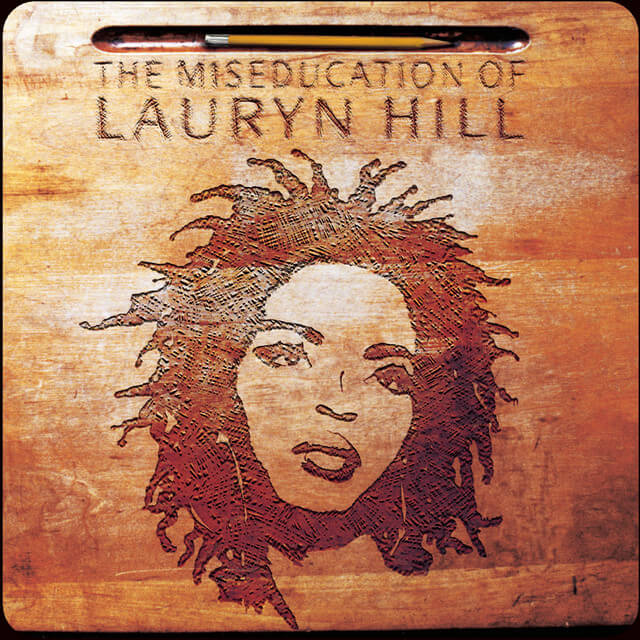 The mythology around Lauryn Hill continues to grow. When the Fugees frontwoman set out on her own and began writing and producing for Whitney Houston, Mary J. Blige and, yeah, Aretha Franklin, it was clear that her brilliance was always going to transcend the band she’d helped turn into Grammy-winning legends. But she’s only ever put out one album under her own name. One. And what a damn incredible album it is. The Miseducation of Lauryn Hill is a revelation from start to finish. It’s a desert island album for me every time, and I could go the rest of my life only listening to it and be more than content. Ms. Hill never held back from injecting the record with her own autobiographical history, touching on her pregnancy, her fallout with her Fugees bandmates and the intersection of love and God. She recorded much of Miseductation in Kingston, Jamaica at Tuff Gong Studios, collaborating with New Ark and producing the songs with Che Pope and Vada Nobles.
The mythology around Lauryn Hill continues to grow. When the Fugees frontwoman set out on her own and began writing and producing for Whitney Houston, Mary J. Blige and, yeah, Aretha Franklin, it was clear that her brilliance was always going to transcend the band she’d helped turn into Grammy-winning legends. But she’s only ever put out one album under her own name. One. And what a damn incredible album it is. The Miseducation of Lauryn Hill is a revelation from start to finish. It’s a desert island album for me every time, and I could go the rest of my life only listening to it and be more than content. Ms. Hill never held back from injecting the record with her own autobiographical history, touching on her pregnancy, her fallout with her Fugees bandmates and the intersection of love and God. She recorded much of Miseductation in Kingston, Jamaica at Tuff Gong Studios, collaborating with New Ark and producing the songs with Che Pope and Vada Nobles.






































